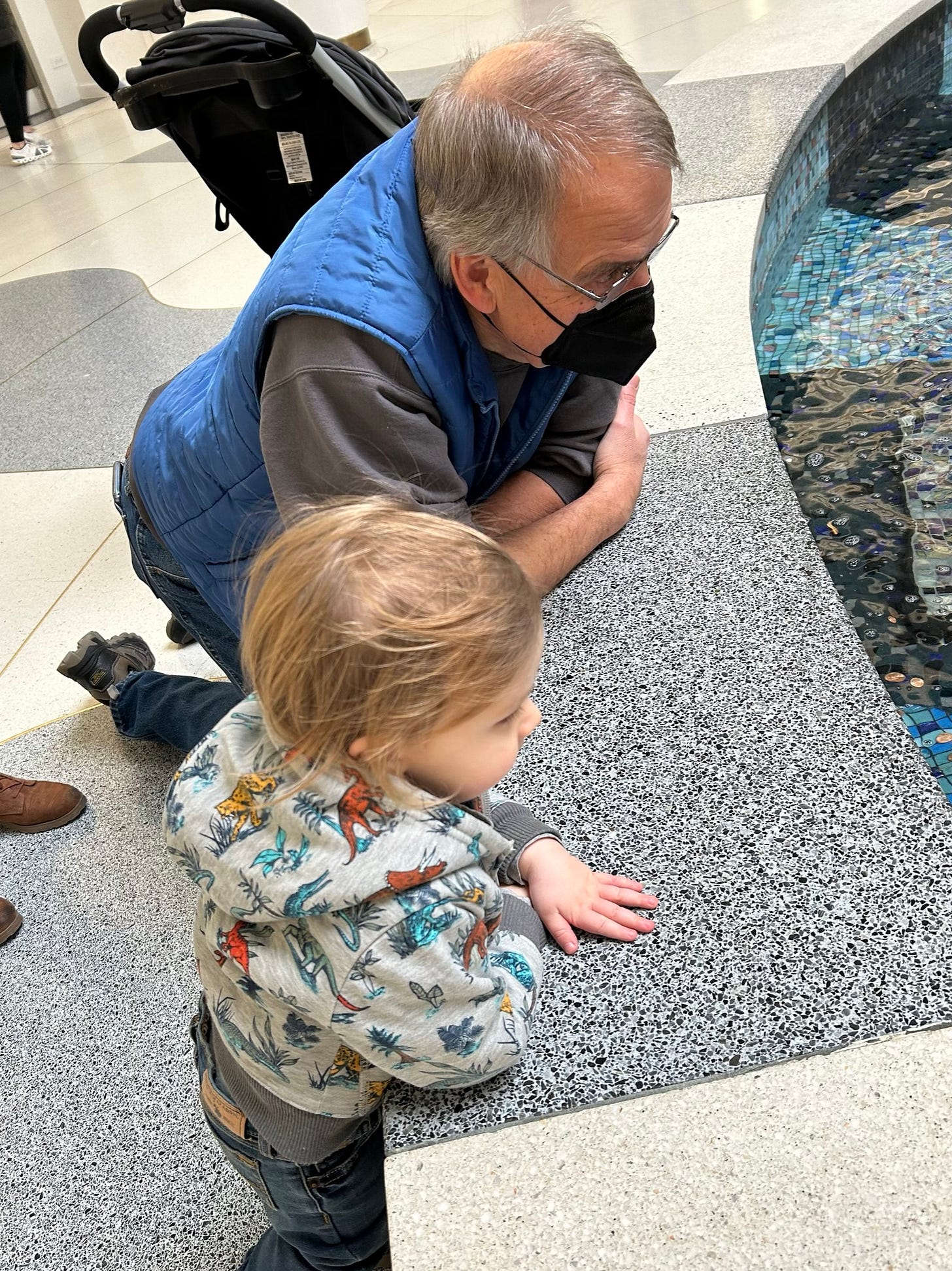050 - More than just a couple friends talking about helping.
A podcast update, a reflection on considering others, and resources.
Welcome back (or welcome)!
Two friends thinking together.
When I started a podcast about finding words in hard times, I wanted to have conversations occasionally. Because that’s what we are doing when we are being helpful.
One day, I was reading Rob Hatch’s new book, Success Frames: Why learning from success is the key to understanding what motivates and inspires us and thought, “the way he talks about frameworks for thinking and doing sounds like why I wrote This Is Hard.” I wanted to offer ways to be helpful.
Two paragraphs later, he was talking about my book.
And so, we got a conversation scheduled.
This isn’t about finding a famous person for an interview. Rob and I (and our families) first met in 2009. I talk about us as Fake Internet Friends, since our first conversations were via internet. But since then, we’ve been in each other’s houses and lives.
This conversation is two friends thinking together out loud about living with grief, about offering support, about remembering in a more helpful way.
We’d love to have you listen in.
Here’s the video version, since Rob’s sister Amy told us we couldn’t talk about things like this without being seen.
Listen on Apple Podcasts.
Listen on Spotify.
+++
It’s more than just a word
“I’m just his mom,” she said. And then she corrected herself. “I’m his mom,” she said with a bit more emotion.
She had used “just” in the way we do sometimes. Joking, a little sarcastic. “I’m just the one who brought you into the world, that’s all.”
But she caught herself and corrected herself just before I did. It wasn’t a moment for self-deprecation. Her son, about my age, was in the bed between us. He’d died a few minutes before. And owning up to the relationship, to significance of this moment, mattered.
Just is a common and subtly damaging word in our conversations. It diminishes the significance of relationship. “We were just friends.” It reduces the magnitude of actions. “It was just a pie.” It minimizes fears and challenges. “Just walk in and start talking.”
Using “just” often centers our perspective, our experience, our personality. It can ignore the needs and personality and challenges the other person faces.
For example, if someone who has lost a partner is an introvert, telling them they should just get out more is not helpful. They may have lost the person who helped them in groups, who gave them safety. The “just” in this case adds pressure, adds the anxiety of crowds and of obligation to the existing grief.
As chaplains, we are the person who holds the form to release the body to the funeral home while the next of kin signs it. It’s tempting to say, “Just sign here.” Because all the person has to do is sign their name, something they’ve done a thousand times.
But that moment is never a “just.” Signing the paper that formalizes death is a deceptively simple, emotionally catastrophic action.
We never know (or maybe we do) what makes things hard for people. Finding words in hard times starts with considering the other person. Before you say “just”, ask yourself what is hard for you. And then ask yourself, “would just be helpful to me?”
Sometimes, being alongside is more helpful that just sending someone off.
+++
A Lent resource for those who are interested.
In 2011, I wrote a post called 33 things to give up for Lent. A bunch of people read it. Eventually, I wrote a devotional for the season of Lent and called it Lent for Non-Lent People: 33 Things to Give up for Lent and Other Readings. During the last decade, a few thousand people have bought this book. I’m not trying to recruit people to Lent. But I wanted to let you know about it.
+++
A new collection of miscarriage and stillbirth resources.
Over the past few years, Kristen Riecke has been supporting bereaved parents after infant loss. Recently, she made a collection of resources available at KristenRiecke.com. They are sorted and linked and in one place. It’s a remarkable resource for when you are looking for resources.
+++
Thanks for stopping by. I’m grateful for comments, shares, support, and your time.
I’m mostly glad you care enough about others to learn how to be helpful.
See you next week.
Jon






